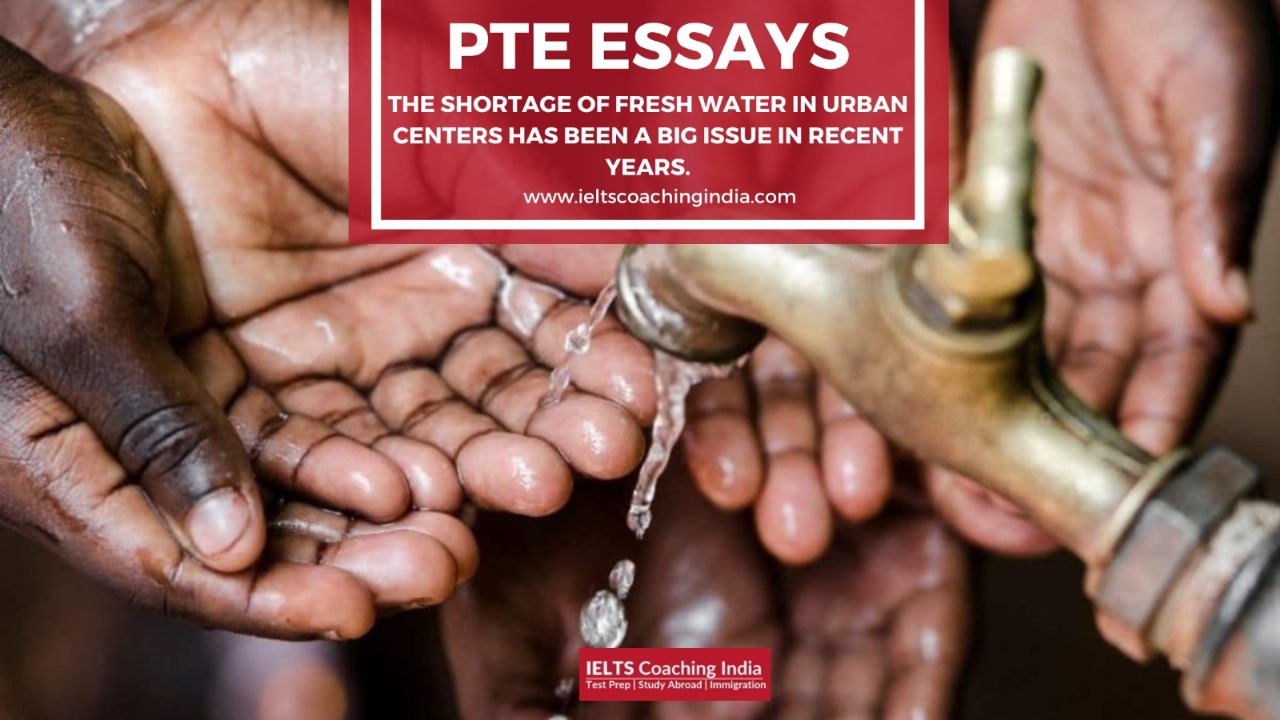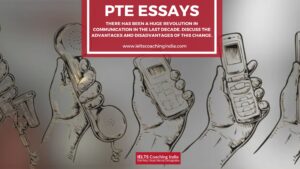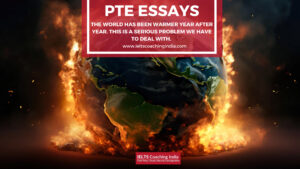In most urban areas and metropolises acute shortage of water has been a pressing issue. There are several reasons for this growing problem however, certain solutions can be considered to remedy this problem.
With rapid urbanization and expansion of cities the pressure on resources like fresh water has been increasing. Ground water levels are fast depleting further aggravating the problem. Also due to unprecedented number of borewells across such areas the water table has gone down further leading to water shortages. Moreover urban lakes and ponds are either drying out or contain polluted water which cannot be used for drinking or cooking. In addition, industries often dump their chemical wastes in rivers leaving the water unusable for household purposes.
Although the situation is grim but with careful planning this problem can be easily solved to a large extent. Firstly, planting more trees across cities can help to restore the water table which later can be a source of fresh water. Also rainwater harvesting should be vigorously encouraged by local authorities among citizens which can be easily treated to supply fresh water. Further, industries should be fined heavily if they try to dispose their waste in rivers and other fresh water resources.
It is interesting to note that many of the cities worldwide have already taken the aforementioned measures to improve the situation however, larger urban areas are struggling to cope with the situation. By adopting wide ranging measures the shortage of fresh water can be addressed to a large extent.
An increasingly pressing issue in recent years, the shortage of fresh water in cities is driven by a combination of environmental, demographic, and infrastructural factors. Understanding the reasons behind this problem is crucial for developing effective solutions to provide sustainable water supply for growing urban populations.
Rapid urbanization is one of the primary causes of water shortages, as the expansion of cities increases demand beyond the capacity of local water sources. Climate change also exacerbates water scarcity by altering precipitation patterns, leading to droughts and reduced water availability in many regions. Additionally, pollution from industrial activities and poor waste management further depletes clean water supplies, making it harder for urban centers to meet their needs.
Several remedies can address these challenges. Improving water management practices is essential, including infrastructure investments to reduce water leakage and waste, promoting efficient water use, and raising public awareness. Governments and local authorities can implement policies that encourage water conservation, such as incentivizing the use of water-efficient appliances and practices in households and industries.
Diversifying water sources is another key strategy, including the development of alternative sources like desalination plants, rainwater harvesting, and recycling wastewater for non-potable uses. Urban planning should also prioritize the protection of natural water bodies, such as rivers and lakes, to ensure a stable and sustainable water supply.
In conclusion, addressing the fresh water shortage in urban centers requires a multifaceted approach that combines improved water management, conservation efforts, and the development of alternative water sources. By taking these steps, cities can better prepare for future challenges and ensure a reliable supply of fresh water for their inhabitants.
In recent years there has been a severe shortage of fresh water in urban centers. This has become an issue of concern. The lack of fresh water is an issue that impacts everyone alike, hence this must be countered with plausible solutions.
Since water is a key resource that we need to survive, we must understand what causes this deficit of fresh water. The main cause of this is the reducing levels of groundwater. As the fresh ground water reduces in quantity, the amount of usable water also goes down. Since we cannot consume salted ocean water, the main natural source of water is rivers and lakes. However, now that urban centers are becoming more and more developed, most water bodies are being polluted. In areas around towns and cities, where agriculture prevails as the primary occupation, the water bodies also get polluted due to fertilizers along with industrial wastes from urban areas.
Before fresh water becomes more scarce than it already is, this problem must be dealt with on a serious note. Action must be taken at an institutional level as well as at an individual level. The Government must put policies in place that reduce the amount of chemically treated waste being thrown in water bodies. Along with policies, the residents of urban centers must work on reducing the wastage of water. They must use water thoughtfully.
In conclusion, the scarcity of fresh water can be taken care of by deploying appropriate measures. It is important to understand that water is a limited resource and must be used wisely.






After I originally commented I appear to have clicked on the -Notify me when new comments are added- checkbox and now whenever a comment is added I receive 4 emails with the same comment. Is there a way you are able to remove me from that service? Kudos.
Thank you ever so for you article.Really looking forward to read more. Much obliged.
Great, thanks for sharing this article.Much thanks again. Great.
Really informative article.Really looking forward to read more. Will read on…
Great, thanks for sharing this article post.Thanks Again. Much obliged.
This is one awesome article post.Really thank you!
Very informative article post.Thanks Again. Really Great.
A big thank you for your article post.Really looking forward to read more. Awesome.
I really like and appreciate your article.Really looking forward to read more. Awesome.
Thanks so much for the article.Much thanks again. Want more.
Great article post.Thanks Again. Great.
Im obliged for the blog.Thanks Again. Really Great.
Major thankies for the blog article.Really thank you! Really Cool.
Very good post. Want more.
Thanks for the blog article.Thanks Again. Great.
Say, you got a nice blog.Thanks Again. Will read on…
Thanks so much for the blog. Will read on…
Appreciate you sharing, great blog post.Really looking forward to read more. Really Cool.
Thanks a lot for the post.Really thank you! Awesome.
I really liked your blog.Really looking forward to read more. Want more.
Really informative article. Really Cool.
Wow, great post. Keep writing.
Very informative article post. Really Great.
Muchos Gracias for your post.Thanks Again. Want more.
Muchos Gracias for your blog post. Much obliged.
Major thanks for the article.Really thank you! Fantastic.
Very informative post.Really looking forward to read more. Great.
Say, you got a nice post. Keep writing.
Incredible story there. What happened after? Take care!
Major thankies for the blog.Really thank you! Want more.
Major thanks for the post.Much thanks again. Really Great.
Major thankies for the article post. Much obliged.
I really enjoy the blog post.Much thanks again. Really Great.
wow, awesome blog.Much thanks again. Awesome.
Say, you got a nice blog article. Will read on…
It’s really a great and useful piece of info. I am happy that you simply shared this useful info with us. Please stay us up to date like this. Thank you for sharing.
wonderful publish, very informative. I’m wondering why the other experts of this sector don’t realize this. You should continue your writing. I’m confident, you have a great readers’ base already!
Very good blog.Really looking forward to read more. Awesome.
Really informative blog article. Really Great.
Wow, great article.Much thanks again. Fantastic.
Really informative blog.Thanks Again. Really Great.
Looking forward to reading more. Great article.Really thank you! Really Cool.
wow, awesome post.Much thanks again. Much obliged.
A big thank you for your post.Much thanks again. Awesome.
I like this post, enjoyed this one thanks for posting. „Pain is inevitable. Suffering is optional.” by M. Kathleen Casey.
Simply wanna state that this is handy , Thanks for taking your time to write this.
Thanks so much for the blog article. Great.
Hi. Interesting material! I’m really appreciate it. It will be great if you’ll read my first article on.
Very good article.Really looking forward to read more.
Really informative article post.Really looking forward to read more.
Piece of writing writing is also a excitement, if you know after that you can write otherwise it is complex to write.
Thanks a lot for the blog.Really looking forward to read more.
Say, you got a nice blog.Thanks Again. Great.
Thanks for sharing, this is a fantastic post.Really thank you! Will read on…
Thanks so much for the article.Much thanks again. Great.
Im obliged for the post.Really thank you! Really Cool.
Aw, this was an extremely nice post. Taking a few minutes and actual effort to generate a really good articleÖ but what can I sayÖ I procrastinate a lot and don’t seem to get anything done.
wow, awesome blog post.Really looking forward to read more. Really Great.
Really appreciate you sharing this blog post.Really thank you! Will read on…
I do believe all of the ideas you have offered on your post. They are very convincing and will certainly work. Still, the posts are very brief for novices. Could you please prolong them a little from next time? Thanks for the post.
I cannot thank you enough for the blog.Thanks Again.
Really informative article. Want more.
Thank you ever so for you post.Thanks Again. Really Great.
I am so grateful for your blog.Really thank you! Keep writing.
Awesome blog post.Really thank you! Really Cool.
Im thankful for the article post. Want more.
A big thank you for your blog.Much thanks again. Fantastic.
Thanks again for the blog post. Much obliged.
Im obliged for the article post.Really looking forward to read more. Keep writing.
Major thanks for the article post. Will read on…
Fantastic article.Really looking forward to read more. Fantastic.
Really informative blog article.Much thanks again. Will read on…
Thanks for the blog post. Much obliged.
I appreciate you sharing this article.Really looking forward to read more. Cool.
Muchos Gracias for your blog.Really looking forward to read more. Awesome.
This is one awesome article. Fantastic.
Hello, all is going fine here and ofcourse every one is sharing facts,that’s truly fine, keep up writing.
Looking forward to reading more. Great post.Really looking forward to read more. Want more.
Im thankful for the blog article.Really looking forward to read more. Really Great.
This is one awesome article.Thanks Again. Great.
I really like and appreciate your post. Want more.
Great, thanks for sharing this blog.
Thanks for the blog.Really looking forward to read more. Really Cool.
Really enjoyed this blog.Really looking forward to read more. Awesome.
Say, you got a nice blog post.Much thanks again. Awesome.
Thanks-a-mundo for the article.Really thank you! Really Great.
Thanks for sharing, this is a fantastic post.Really looking forward to read more. Awesome.
I needed to thank you for this wonderful read!!I definitely enjoyed every bit of it. I have got you bookmarked to check out new stuff youpost…
Im grateful for the article.Really thank you! Cool.
weeks of hard work due to no back up. Do you have any solutions to stop hackers?
This was super intresting to read. Thanks for creating it. You made a long-term reader and I’ll return to view more. Thanks for sharing.
Very good article.Really looking forward to read more. Keep writing.
I just turned 71 this year and I really admire your writing!
Wow, great post.Really thank you! Great.
I appreciate you sharing this article post.Really thank you!
A big thank you for your article post.Really thank you! Fantastic.
I think this is a real great blog post.Thanks Again. Want more.
Very neat post.Really looking forward to read more. Keep writing.
I really liked your blog.Thanks Again. Cool.
Thanks so much for the blog.Really thank you! Much obliged.
Great, thanks for sharing this blog.Thanks Again. Really Cool.
I really liked your blog article.Much thanks again. Keep writing.
wow, awesome blog. Fantastic.
Thanks for sharing your thoughts. I really appreciate yourefforts and I am waiting for your further write upsthank you once again.
Really appreciate you sharing this blog post.Thanks Again. Want more.
This is one awesome blog post.Really thank you! Will read on…
Pretty nice post. I just stumbled upon your blog and wanted to say that I ave truly enjoyed browsing your blog posts. In any case I all be subscribing
This is one awesome blog post.Much thanks again. Will read on…
Very informative post.Much thanks again. Awesome.
Thank you for your blog post.Thanks Again. Much obliged.
This article offers clear idea for the new visitors of blogging, that truly how to do running a blog.
Thanks-a-mundo for the blog.Much thanks again. Really Cool.
I appreciate you sharing this blog article.Really looking forward to read more.
I truly appreciate this article.Thanks Again.
I really enjoy the article.Really looking forward to read more. Cool.
Thank you for your blog.Thanks Again. Keep writing.
Looking forward to reading more. Great article.Much thanks again. Want more.
Great, thanks for sharing this article post.Thanks Again. Much obliged.
I think this is a real great article post.Really thank you! Much obliged.
Thanks-a-mundo for the blog post.Really looking forward to read more. Will read on
I cannot thank you enough for the article post.Really looking forward to read more. Really Cool.
I simply must tell you that you have written an excellent and unique article that I really enjoyed reading. I’m fascinated by how well you laid out your material and presented your views. Thank you.blockchain
how to make hydroxychloroquine at home chloroquine malaria
Knowing the plays will keep you from looking foolish on the field.
I appreciate you sharing this blog post.Really looking forward to read more. Great.
Thanks-a-mundo for the post.Really looking forward to read more. Really Cool.
Hey, thanks for the blog post.Much thanks again. Really Cool.
Thanks for sharing, this is a fantastic post.Much thanks again. Will read on…
Very good blog.Really thank you!
This is one awesome article.Thanks Again. Will read on…
Thanks again for the article.Much thanks again. Fantastic.
Really enjoyed this blog post.Thanks Again. Keep writing.
Im obliged for the article.Really looking forward to read more. Much obliged.
I truly appreciate this blog article.Really looking forward to read more. Keep writing.
I loved your blog.Much thanks again. Cool.
Very informative blog article.Really thank you! Really Great.
Im grateful for the blog.Much thanks again. Keep writing.
Appreciate you sharing, great blog post.Much thanks again. Keep writing.
Looking forward to reading more. Great article post. Really Cool.
Thanks for the marvelous posting! I really enjoyed reading it, you can be a great author. I will ensure that I bookmark your blog and will eventually come back sometime soon. I want to encourage you to continue your great job, have a nice morning!
Enjoyed every bit of your post.Really looking forward to read more. Great.
Major thankies for the blog post. Cool.
A big thank you for your blog.Really thank you! Great.
Very neat post.Really thank you! Really Great.
Major thankies for the article.Really looking forward to read more.
Im thankful for the article.Thanks Again. Much obliged.
Appreciate you sharing, great blog. Cool.
This paragraph is really a pleasant one it assists new net visitors, who are wishing in favor of blogging.
An intriguing discussion is worth comment. I believe that you should write more about this subject, it might not be a taboo subject but usually people do not talk about such topics. To the next! Cheers!!
I’m not sure where you are getting your info, but great topic.I needs to spend some time learning much more or understanding more.Thanks for great info I was looking for this info for my mission.
Do not forget the mental training you learned.
Hi colleagues, how is everything, and what you would like to say on the topic of this article,in my view its actually amazing in favor of me.
Muchos Gracias for your blog.Much thanks again. Keep writing.
Great blog article.Much thanks again. Want more.
Looking forward to reading more. Great article.Thanks Again. Cool.
I wanted to thank you for this good read!! I definitely loved every bit of it. I have got you book marked to look at new things you postÖ
Major thanks for the article post. Fantastic.
Thank you for your blog post.Really thank you! Really Great.
Attractive section of content. I just stumbled upon your blog and in accession capital to assert that Iget in fact enjoyed account your blog posts. Any way I’ll be subscribing to your augment and even Iachievement you access consistently rapidly.
An interesting discussion is definitely worth comment. I do believe that you should write more on this subject matter, it might not be a taboo subject but generally people don’t talk about these subjects. To the next! Many thanks!!
Great, thanks for sharing this post.Much thanks again. Fantastic.
I am so grateful for your post.Much thanks again. Great.
Major thanks for the article.Really thank you! Cool.
This blog was… how do you say it? Relevant!! Finally I have foundsomething that helped me. Thanks!
Fine way of explaining, and pleasant paragraph to take dataregarding my presentation focus, which i am going to present in institution of higher education.
Thanks for your personal marvelous posting! I actually enjoyed reading it, you are a great author.I will make certain to bookmark your blog and may come back from now on. I want to encourage you to continue your great posts, have a nice afternoon!
Thank you ever so for you blog article.Really thank you! Will read on…